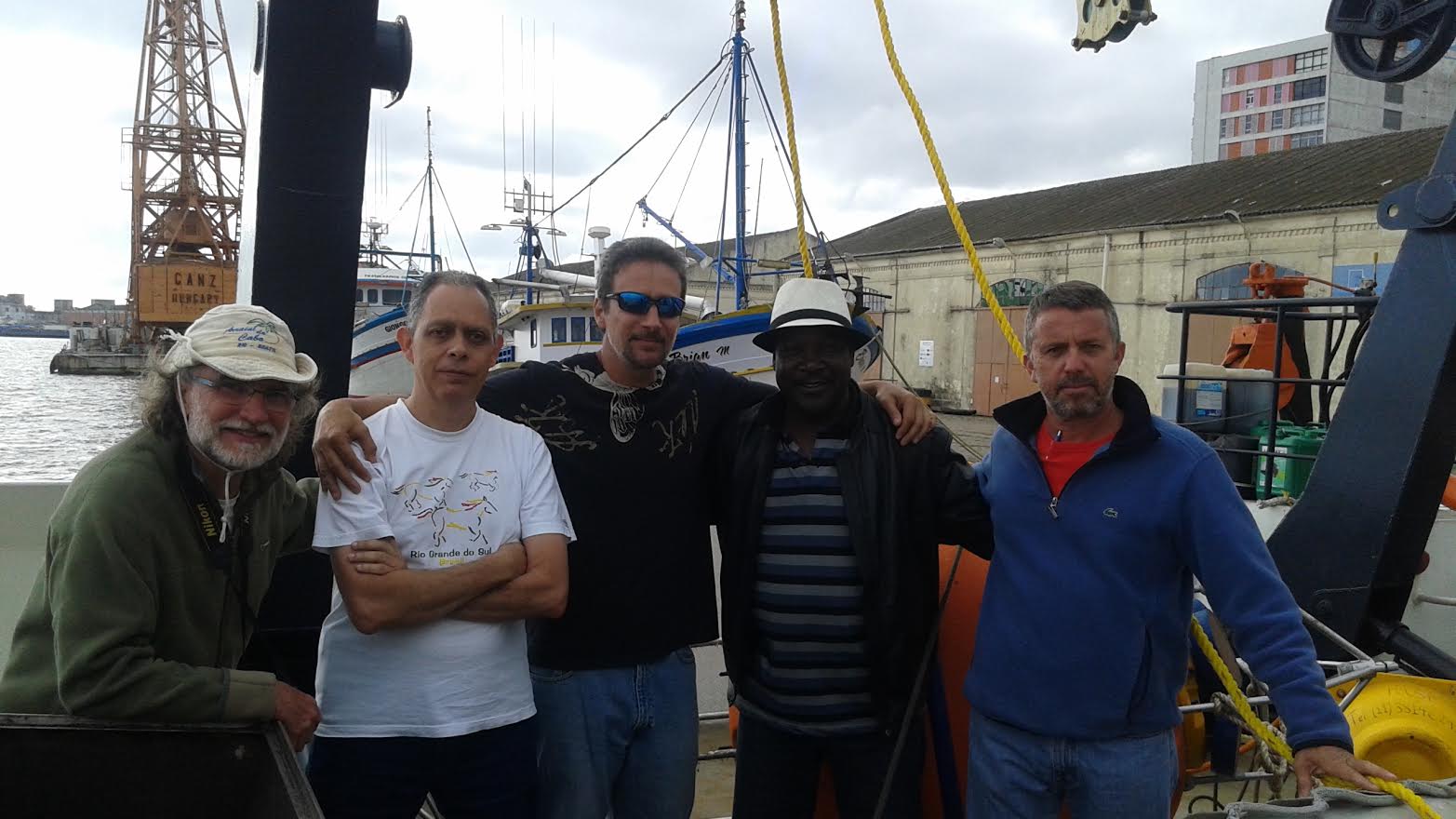AOML engineer leads crucial mooring turn-around during South Atlantic research cruise
Mr. Ulises Rivero, the chief engineer in AOML's Physical Oceanography Division Instrumentation Group, joined with partners from the University of Sao Paulo, Brazil, on a recent cruise to recover, refurbish, and redeploy a crucial moored instrument in the NOAA-funded Southwest Atlantic MOC (“SAM”) array at 34.5S in the South Atlantic. The SAM project is a key component of the NOAA strategy to measure variations in the Meridional Overturning Circulation (MOC) in the Atlantic. The SAM array measures the western boundary components of the MOC, and it also represents the cornerstone of the developing international program to measure the basin-wide MOC transports across 34.5S – which is known as the South Atlantic MOC Basin-wide Array (“SAMBA”). The November 8-12, 2015, cruise represented a critical operation for both the NOAA SAM project and the affiliated Brazilian project. Several of the moored instruments in the joint array were nearing the end of their battery life and were at risk of loss, but the primary vessel planned for use for the major joint research cruise had broken down and was not available to recover these instruments. The strong international collaborative group that forms the backbone of the SAMBA program worked together to find an alternate vessel to do the mooring operations that were absolutely necessary before the batteries ran out. The captain and crew of the Brazilian research vessel Alpha Delphini sailed their small ship a bit further offshore than they normally do, and they helped Mr. Rivero and the Brazilian science team successfully turn-around the key NOAA mooring as well as helping to recover two important Brazilian moored instruments. The new NOAA pressure-equipped inverted echo sounder (PIES) mooring deployed during the cruise will now make hourly measurements for the next four years, continuing a time series that has already reached six years so far since the SAM array was first deployed in March 2009. NOAA's contribution to this effort is funded by the NOAA Climate Program Office/Climate Observations Division and by the NOAA Atlantic Oceanographic and Meteorological Laboratory.

Figure caption: Science party photo from the November 2015 cruise onboard the Brazilian research vessel Alpha Delphini. From left to right: Francisco Vicentini, Wilson Natal, Ulises Rivero, Luiz Mariano, and Carlos Franca.